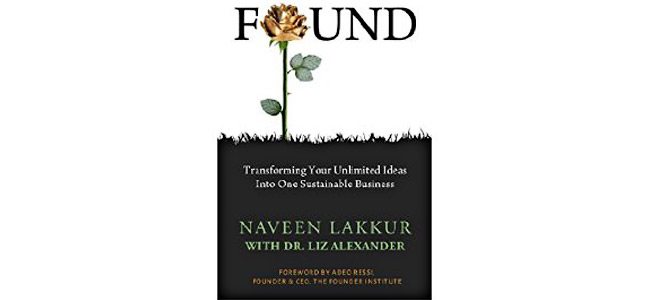The Secret to Winning with Great Ideas
IPL Faculty Naveen Lakkur is an Innovation Coach and a Strategic Consultant. In a tete-a-tete, Prof. Naveen shared his views on the process of Ideation and the importance of choosing the right idea to build a successful business.

1. Considering how important idea generation is for setting up the next big venture, is it easy to come up with business ideas?
For smart people, coming up with an idea is quite easy. They probably have tons of ideas revolving around their head, but choosing the right one to execute can be quite a task. You need to track the magnitude of each idea in order to decide what stays and what goes because not all ideas create the same wave of excitement. And not all ideas have business potential.
2. In order to write their own success stories, how can entrepreneurs come up with great ideas?
Starting a new business based on the idea that you have got can be risky, but entrepreneurs and innovators welcome risk as they understand the concept of ‘high risk, high reward’. While that’s true, there has to be a method to the ‘idea’ madness. “Will the idea work?” is a very important question that you need to consider before plunging into an ocean full of risks. It is one thing to come up with ideas, but having a disciplined approach to distilling the best among the rest is equally important as it gets you closer to ’success’. It seems a little bit more believable when you’ve heard it from those who’ve been in those shoes at some point of time in their life.
3. Can you tell us more about your book “FOUND” and why you chose to write this book?
Experience has taught me that if you pick a real problem to solve; stay committed to solving the problem than a particular idea (solution); generate many ideas that could probably solve the problem; thoroughly orientate each idea against what you stand for and who you are, unearth all that invaluable information and enter into negotiations with interested parties before going forward, the right idea will rise to the top. Choosing a winning idea to build a business is a fantastic journey by itself and the real journey of making your idea work requires the generation of many more ideas and timely pivoting.
For smart people, coming up with an idea is quite easy. They probably have tons of ideas revolving around their head, but choosing the right one to execute can be quite a task. You need to track the magnitude of each idea in order to decide what stays and what goes because not all ideas create the same wave of excitement. And not all ideas have business potential.
2. In order to write their own success stories, how can entrepreneurs come up with great ideas?
Starting a new business based on the idea that you have got can be risky, but entrepreneurs and innovators welcome risk as they understand the concept of ‘high risk, high reward’. While that’s true, there has to be a method to the ‘idea’ madness. “Will the idea work?” is a very important question that you need to consider before plunging into an ocean full of risks. It is one thing to come up with ideas, but having a disciplined approach to distilling the best among the rest is equally important as it gets you closer to ’success’. It seems a little bit more believable when you’ve heard it from those who’ve been in those shoes at some point of time in their life.
3. Can you tell us more about your book “FOUND” and why you chose to write this book?
Experience has taught me that if you pick a real problem to solve; stay committed to solving the problem than a particular idea (solution); generate many ideas that could probably solve the problem; thoroughly orientate each idea against what you stand for and who you are, unearth all that invaluable information and enter into negotiations with interested parties before going forward, the right idea will rise to the top. Choosing a winning idea to build a business is a fantastic journey by itself and the real journey of making your idea work requires the generation of many more ideas and timely pivoting.

The idea of writing “FOUND” came from my wanting to learn more about and share the wonderful journeys of individuals such as Rajeev Pathak, CEO, funtoot; Janardan Prasad, Co-Founder & COO, Autowale; Poornima Shenoy, Founder and CEO, Latitude Edutech and many others. All of them have been gracious enough to share their personal experiences about the journeys they have ventured in, to transform their unlimited ideas into one sustainable business.
4. Can you give us the example of any business which went through the journey of experimenting with new ideas and timely pivoting to increase the chances of success?
The example that immediately comes to my mind is Snapdeal - a company that sold discount coupons, first offline and then online, Snapdeal had to morph 5 times until the current business model of a marketplace-based e-commerce company was built. Now it is a successful unicorn that has come up from the initial days of struggle for the survival phase of the startup. Snapdeal had to constantly experiment with new ideas and many of them failed. Understanding the retailers and their need for increasing sales, poor infrastructure for delivery of goods and many other reasons resulted in multiple iterations which eventually helped the team to understand the needs of local merchants and create a solution for the real problem.
5. Finally, what is your take on entrepreneurship and why do you think people should take up entrepreneurship?
Entrepreneurship is an ocean full of risks and opportunities, but once you know you’ve got the fuel to run your ship, you begin to feel more confident to take the risk and translate the opportunity into success. The good news is that the whole ecosystem is building up and available to support you in this journey of entrepreneurship and innovation, like never before. Enjoy the journey, the journey is the reward.
4. Can you give us the example of any business which went through the journey of experimenting with new ideas and timely pivoting to increase the chances of success?
The example that immediately comes to my mind is Snapdeal - a company that sold discount coupons, first offline and then online, Snapdeal had to morph 5 times until the current business model of a marketplace-based e-commerce company was built. Now it is a successful unicorn that has come up from the initial days of struggle for the survival phase of the startup. Snapdeal had to constantly experiment with new ideas and many of them failed. Understanding the retailers and their need for increasing sales, poor infrastructure for delivery of goods and many other reasons resulted in multiple iterations which eventually helped the team to understand the needs of local merchants and create a solution for the real problem.
5. Finally, what is your take on entrepreneurship and why do you think people should take up entrepreneurship?
Entrepreneurship is an ocean full of risks and opportunities, but once you know you’ve got the fuel to run your ship, you begin to feel more confident to take the risk and translate the opportunity into success. The good news is that the whole ecosystem is building up and available to support you in this journey of entrepreneurship and innovation, like never before. Enjoy the journey, the journey is the reward.
Facebook
Twitter
LinkedIn
Trending Posts
Tagged blogs




